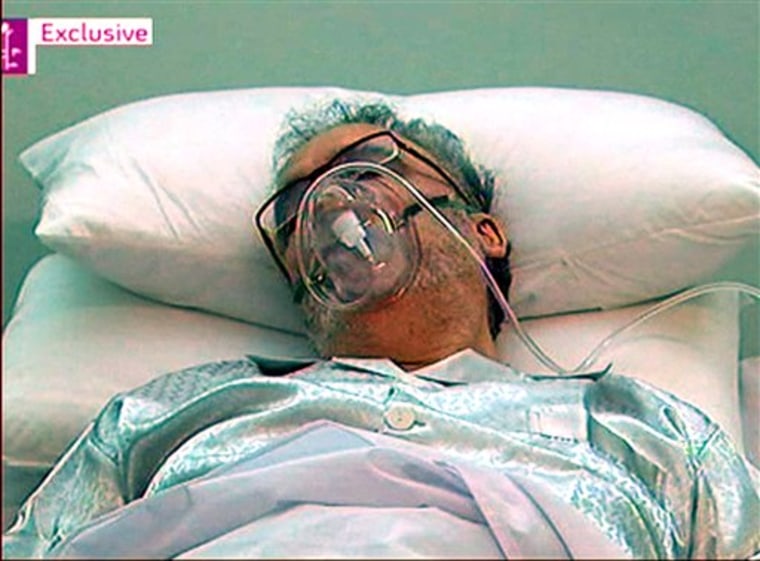The only man convicted in the 1988 Lockerbie bombing was taken to intensive care Wednesday after his illness from terminal prostate cancer worsened, family members said.
According to Libyan officials, Abdel Baset al-Megrahi's health has swiftly deteriorated since he was released from a Scottish prison less than two weeks ago and returned home to Libya to die.
The family members, who spoke on condition of anonymity because of the sensitivity of the matter, said they have not been allowed to visit him and there was no way to independently verify al-Megrahi's condition.
Scottish officials released al-Megrahi from prison on Aug. 20 on compassionate grounds, sparking an international uproar. At the time, Scottish officials said doctors had determined he had less than three months to live.
‘Deteriorating fast’
On Tuesday, the head of the Libyan State Information Agency, Majid al-Dursi, said al-Megrahi is in the hospital and described him as "very sick."
"His health is deteriorating fast since he arrived," al-Dursi said. Asked how long al-Megrahi could still have to live, he answered: "Only God knows when it will be over. But he is dying now."
Television footage on Britain's Channel 4 Sunday showed al-Megrahi in the hospital, breathing through an oxygen mask and propped up by pillows.
Al-Megrahi was the only person convicted of the bombing of Pan Am Flight 103 over Lockerbie, Scotland, which killed all 259 people on board the plane and 11 people on the ground.
His release from prison has been sharply criticized by victims' families in the United States, President Barack Obama and FBI director Robert Mueller.
The release and return to Libya, where he was greeted warmly at the airport by cheering supporters, has outraged many of the Lockerbie victims' families and raised questions about whether he was freed to facilitate lucrative oil trade with Libya.
Scottish vote disapproves of release
Scottish lawmakers held a symbolic vote Wednesday to disapprove of the Lockerbie bomber's release, as the British government emphatically denied that his was motivated by economic or diplomatic reasons.
The Scottish government had asked the parliament to endorse the decision as "consistent with the principles of Scottish justice." But by a 73-50 vote with one abstention, legislators backed an opposition amendment condemning Justice Secretary Kenny MacAskill's decision as mishandled — and saying they disagreed with the government's actions in freeing the Libyan convicted in the 1988 explosion that killed 270 people.
"Releasing the Lockerbie bomber was a bad decision, made badly," Annabel Goldie, a Conservative Party member in the Scottish Parliament.
The vote is largely symbolic and was not an attempt to topple the Scottish government.
Brown responds to criticism
British Prime Minister Gordon Brown sought Wednesday to beat back criticism surrounding the release, insisting that he gave no assurances to Libya's leaders that the bomber would be freed in exchange for oil contracts.
"On our part, there was no conspiracy, no cover-up, no double-dealing, no deal on oil, no attempt to instruct Scottish ministers, no private assurances by me to (Libyan leader) Colonel (Muammar) Gaddafi," Brown said at an employment summit in Birmingham, central England.
Scotland has also denied that business interests had anything to do with allowing al-Megrahi to leave prison after completing only eight years of his life sentence. Britain has regional governments in Scotland, Wales and Northern Ireland that are responsible for local issues but retains power over foreign policy.
Britain has growing economic interests in Libya — from oil exploration to financial services. Last year, British imports from Libya topped some 1 billion pounds ($1.6 billion).
Scotland has defended the release, arguing that compassionate release is a standard part of Scottish justice for dying prisoners.
